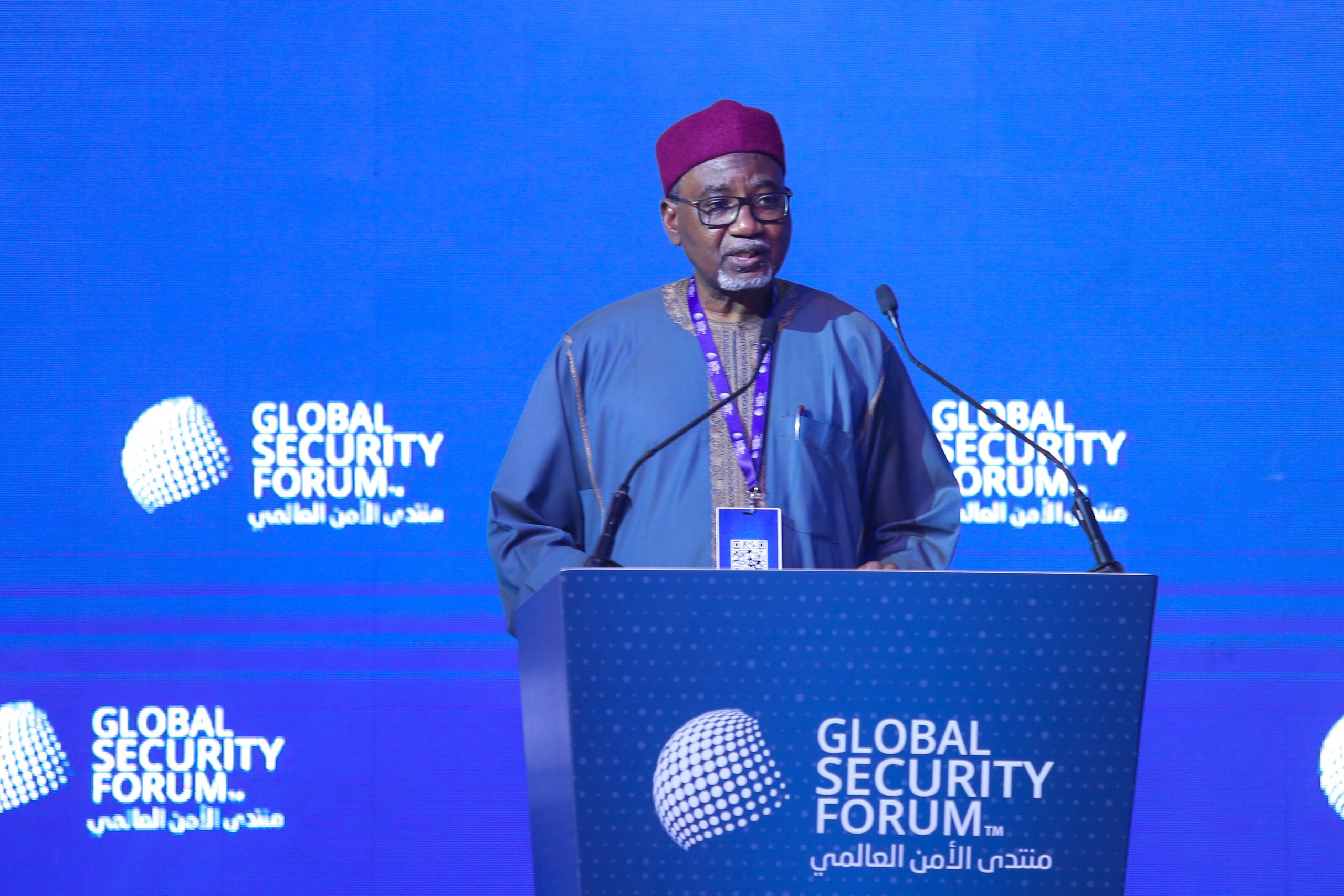Nigeria’s Intelligence Director Ahmed Abubakar praised Qatar’s Global Security Forum and the Gulf country’s extensive mediation efforts in global and regional conflicts during his speech in Doha.
Ahmed Abubakar, the Director General of Nigeria’s National Intelligence Agency has praised Qatar’s “bold initiative” to establish the Global Security Forum (GSF) as well as its global mediation efforts.
Abubakar’s remarks came during the GSF in Doha, held between May 20-22, where he started his speech by praising the host nation.
“Over the years, this forum has demonstrated its significance and relevance in providing the needed platform […] to engage in robust discourse on complex and multiple security challenges the world is confronted with,” he said.
The Nigerian official went on to applaud Qatar’s “deliberate and resilient intervention” to achieve global peace. He outlined Doha’s past and current mediation efforts including in Darfur, Afghanistan, Chad, and Gaza.
“The deliberate and resilient intervention of the State of Qatar sustained over the years in regional and global efforts and initiatives in peacemaking and peacebuilding, including mediation processes and humanitarian interventions,” he said, describing its diplomatic role as “legendary.”
“Qatar has remained focused and committed despite the daunting nature of the endeavor on the challenges it faced for venturing out to help and assist,” he added.
Qatar’s mediation efforts
Qatar has stood out as the region’s diplomatic power with a rich record of mediation efforts.
In 2009, Qatar sponsored the signing of the “Doha Accord”, also known as the “Darfur agreement”, between Sudan and Chad.
The agreement, co-sponsored with Libya, was signed amid tensions between Sudan and Chad in 2008 when both countries accused each other of supporting insurgent groups and rebel attacks inside their territories.
In 2021, Qatar led a major role in the Kenya and Somalia reconciliation following a dispute that saw the latter accuse Nairobi of interfering in its internal affairs.
Qatar also led mediation efforts between at least 50 Chadian sides in 2022, which resulted in the Chad Peace Agreement following months of negotiations in Doha.
In January 2023, Qatar attempted to host peace talks between the Democratic Republic of Congo and Rwanda to resolve the ongoing tensions between both sides. However, conflicting reports at the time claimed that the meeting was cancelled due to a no-show by DRC’s leader.
Beyond Africa, Doha stepped in last year as an interlocutor between the U.S. and Iran in an effort to revive the 2015 nuclear deal, formally known as the Joint Comprehensive Plan of Action (JCPOA).
This resulted in a historic deal on September 18, 2023, which saw the release of five Iranians and five Americans as well as the unfreezing of $6 billion in Iranian assets overseas.
Most notably, the Gulf state brought the former Afghan government and the Taliban to the table of negotiations in 2020 to reach a peaceful settlement.
During the same year, Qatar brought the U.S. and the Taliban together following more than a decade of war, resulting in the Doha Agreement.
In the wake of the Taliban’s takeover, Qatar led history’s largest airlift of people and successfully evacuated more than 80,000 Afghans and foreigners from the country. Its efforts in Afghanistan have gained the country the status of a major non-NATO ally in 2022 by the U.S.
Qatar is currently playing a crucial mediating role between Israel and Hamas in hopes of reaching a ceasefire in Gaza and a captives’ release deal.







